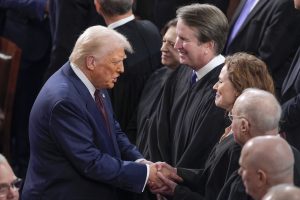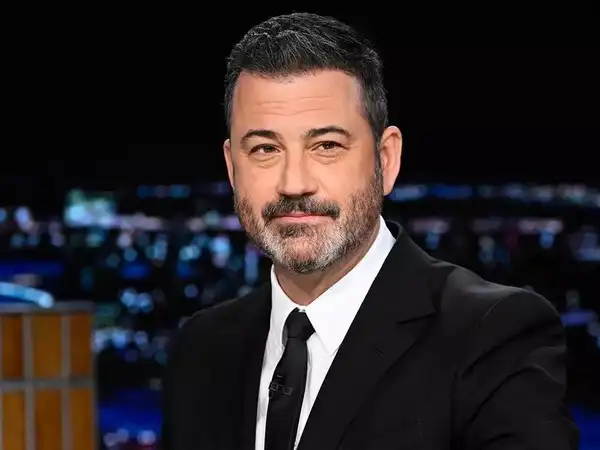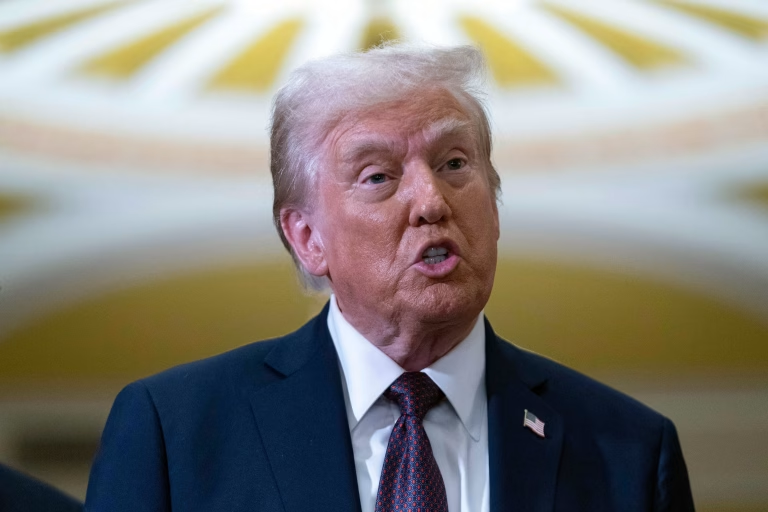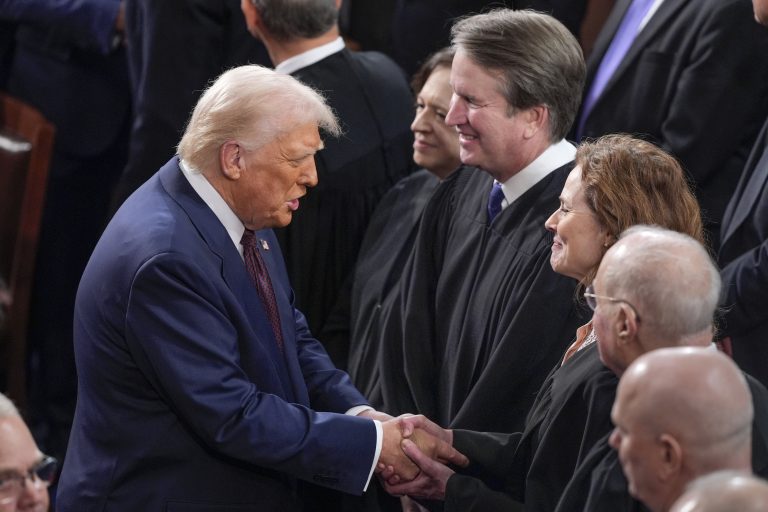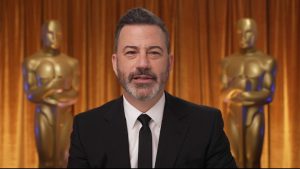Jimmy Kimmel’s long-running late-night talk show has been thrown into turmoil after the comedian’s pointed remarks about Donald Trump’s response to the death of political activist Charlie Kirk sparked a fierce backlash.
The program, Jimmy Kimmel Live!, which has been a staple of ABC’s late-night lineup since 2003, was suspended indefinitely on Wednesday, September 17. The decision came after the nation’s largest ABC affiliate operator, Sinclair Broadcast Group, confirmed that the suspension would remain in place until several strict conditions are met.
Kimmel now faces three demands if he wishes to return to air—an unprecedented development that underscores how volatile the political and media climate has become following Kirk’s assassination.
The incident that set off the firestorm
Charlie Kirk, a high-profile conservative commentator and founder of Turning Point USA, was fatally shot on September 10 while participating in a debate at Utah Valley University. The shocking event took place in front of an audience of more than 3,000 people, which included Kirk’s wife and two young children.
According to authorities, 22-year-old Tyler Robinson has since been arrested and charged with seven offenses, including aggravated murder and obstruction of justice. The killing immediately drew national attention, given Kirk’s visibility as a close ally of President Donald Trump and a prominent voice in conservative politics.
Kirk was no stranger to controversy during his career. He had often defended the Second Amendment with uncompromising rhetoric, even once claiming that certain gun deaths were “worth it” to preserve constitutional rights. His sudden and violent death not only shocked supporters but also reignited heated debates about gun control, political rhetoric, and security at public events.
Trump’s response under scrutiny
In the days after the shooting, President Donald Trump was asked outside the White House by a reporter how he was coping with the loss of Kirk, whom he had frequently referred to as a friend and staunch supporter.
Trump’s reply struck many observers as odd. Rather than addressing the tragedy directly, he quickly pivoted: “I think very good,” he said, before launching into a discussion about renovations at the White House. Gesturing to nearby construction equipment, Trump added:
“And by the way, right there you see all the trucks. They just started construction of the new ballroom for the White House, which is something they’ve been trying to get for about 150 years. And it’s gonna be a beauty. It’ll be an absolutely magnificent structure.”
The remarks raised eyebrows among both critics and supporters. For some, it seemed callous that the President so swiftly shifted focus from the death of a close ally to architectural plans for a ballroom.
Kimmel’s on-air reaction
Jimmy Kimmel seized upon the moment in a recent monologue, airing clips of Trump’s responses both to the press and in a subsequent Fox News interview.
Kimmel mocked the President’s pivot, remarking: “He’s at the fourth stage of grief: construction. This is not how an adult grieves the murder of someone he called a friend. This is how a four-year-old mourns a goldfish, OK?”
Doubling down, Kimmel criticized Trump for repeating similar comments in another interview: “There’s something wrong with him, there really is. Who thinks like that? We hit some new lows over the weekend with the MAGA gang desperately trying to paint this kid who murdered Charlie Kirk as anything but one of their own, while doing everything they can to turn it into political points.”
The comments quickly spread online, sparking anger among Trump supporters and many conservatives. President Trump himself condemned Kimmel, calling for ABC to fire him outright.
Sinclair steps in
As the nation’s largest operator of ABC affiliates, Sinclair Broadcast Group holds substantial influence over what content is broadcast in local markets. On Wednesday, September 17, the company announced that Jimmy Kimmel Live! would be suspended indefinitely from its stations.
In a statement, Sinclair said the suspension would remain until three specific conditions are fulfilled:
-
A formal discussion with ABC executives — Sinclair insisted that ABC must demonstrate a clear “commitment to professionalism and accountability” in how it manages its late-night programming going forward.
-
A direct apology to the Kirk family — The company called on Kimmel to personally apologize to Kirk’s widow, children, and relatives for his remarks, which many considered insensitive in the immediate aftermath of a tragic killing.
-
A meaningful personal donation — Kimmel was asked to make a contribution to both the Kirk family and Kirk’s organization, Turning Point USA, as a gesture of goodwill and accountability.
Sinclair stressed that these measures were non-negotiable. “Regardless of ABC’s plans for the future of the program,” the statement read, “Sinclair intends not to return Jimmy Kimmel Live! to our air until we are confident that appropriate steps have been taken to uphold the standards expected of a national broadcast platform.”
A career of controversy
Kimmel is no stranger to political feuds. Over the past decade, he has often used his platform to skewer Donald Trump and his allies, drawing both praise and criticism in equal measure. His emotional monologues on issues like health care, gun violence, and political scandals have cemented his role as one of late-night television’s most outspoken voices.
But while sharp commentary has long been part of his brand, this latest controversy has escalated beyond the usual media spats. Never before has one of the country’s major broadcast affiliate groups suspended a flagship late-night program over political remarks.
For some, the move raises broader concerns about freedom of expression and the growing influence of powerful broadcasters in shaping public discourse. For others, it is seen as a necessary step in maintaining respect and sensitivity during a moment of national mourning.
What happens next?
At present, Kimmel has not directly addressed Sinclair’s demands or commented on the suspension. ABC has also remained largely quiet, issuing only a brief statement acknowledging that discussions with affiliates are ongoing.
Behind the scenes, however, pressure is mounting. ABC faces a difficult balancing act between supporting one of its longest-serving hosts and appeasing affiliates who control access to millions of American households.
Meanwhile, Trump’s calls for Kimmel’s firing have further intensified partisan divides. Supporters of the President argue that Kimmel crossed a line by mocking Trump’s grieving process and politicizing Kirk’s death. Critics of Trump, on the other hand, contend that the suspension is an overreach designed to punish dissenting voices.
Broader implications
The controversy highlights the increasingly blurred lines between politics, media, and entertainment. Late-night hosts, once primarily known for celebrity interviews and comedy sketches, have evolved into influential commentators shaping public opinion on pressing national issues.
But as this saga demonstrates, the cost of speaking out can be steep. With corporate broadcasters, political figures, and passionate audiences all exerting pressure, hosts like Kimmel face unprecedented scrutiny over every word.
The resolution of this conflict may set a precedent for how networks and affiliates handle politically charged commentary in the future. If Kimmel agrees to the three demands, it could signal a shift toward greater caution in late-night television. If he resists, ABC may face a protracted standoff with its affiliates and risk losing one of its most recognizable personalities.
Conclusion
For now, Jimmy Kimmel Live! remains off the air, its future uncertain. Whether the show returns will depend not only on Kimmel’s willingness to meet Sinclair’s demands but also on how ABC navigates the stormy waters of politics, media accountability, and free expression.
One thing is clear: the fallout from Charlie Kirk’s tragic death has rippled far beyond Utah Valley University, reshaping conversations in both Washington and Hollywood. And Jimmy Kimmel, once just a late-night comedian, now finds himself at the center of a national debate about respect, responsibility, and the limits of political comedy.

James Jenkins is a celebrated Pulitzer Prize-winning author whose work has reshaped the way readers think about social justice and human rights in America. Raised in Atlanta, Georgia, James grew up in a community that instilled in him both resilience and a strong sense of responsibility toward others. After studying political science and creative writing at Howard University, he worked as a journalist covering civil rights issues before dedicating himself fully to fiction. His novels are known for their sharp, empathetic portraits of marginalized communities and for weaving personal stories with broader political realities. Jenkins’s breakout novel, Shadows of Freedom, won national acclaim for its unflinching look at systemic inequality, while his more recent works explore themes of identity, resilience, and the fight for dignity in the face of oppression. Beyond his novels, James is an active public speaker, lecturing at universities and participating in nonprofit initiatives that support literacy and community empowerment. He believes that storytelling is a way to preserve history and inspire change. When not writing, James enjoys jazz music, mentoring young writers, and traveling with his family to explore cultures and stories around the world.


